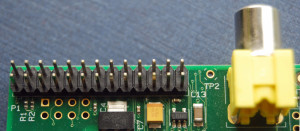I’ve been using Emacs as my primary editor for a while now. A lot of people prefer IDE’s, but I’ve never been comfortable with them. I kind of like the ability to show a list of classes & functions in a file though. Emacs can use ctags to generate a list of tokens for a file, but I weren’t really satisfied with its output.
As you probably know, PHP has a ridiculous amount of functions for all kinds of things, and as it happens, token_get_all gives access to the Zend Engine tokenizer. In other words, the same chunk of code, which PHP itself uses, when reading a .php file. This provides an excellent base for writing a script, which can parse the socks off ctags.
So without further ado: ~/scripts/tokens.php parses a file and prints the classes and functions found in there. It also prints a small excerpt of any docblocks, which precedes the item. This makes for a nice table of contents.
<?php
if (!defined('T_UNSPECIFIED_STRING')) {
define('T_UNSPECIFIED_STRING', -1);
}
function token_get_all_improved($data) {
$tokens = array();
$line = 1;
$col = 0;
$level = 0;
$scope_level = null;
$in_scope = false;
foreach (token_get_all($data) as $token) {
if (is_array($token)) {
list ($token, $text) = $token;
} else if (is_string($token)) {
$text = $token;
$token = T_UNSPECIFIED_STRING;
}
if ($token === T_CURLY_OPEN || $token === T_DOLLAR_OPEN_CURLY_BRACES || $text === '{') {
++$level;
if (is_null($scope_level)) {
$scope_level = $level;
}
} else if ($text == '}') {
--$level;
if ($in_scope && $level < $scope_level) {
$in_scope = false;
}
}
$tmp = $text;
$num_new_lines = substr_count($tmp, "n");
if (1 <= $num_new_lines) {
$line += $num_new_lines;
$col = 1;
$tmp = substr($tmp, strrpos($tmp, "n") + 1);
if ($tmp === false) {
$tmp = '';
}
}
$col += strlen($tmp);
if ($token === T_INTERFACE || $token === T_CLASS) {
$in_scope = true;
$scope_level = null;
}
$xtoken = new StdClass();
$xtoken->type = $token;
$xtoken->text = $text;
$xtoken->line = $line;
$xtoken->col = $col;
$xtoken->blockLevel = $level;
$xtoken->isClassScope = $in_scope && !is_null($scope_level);
$tokens[] = $xtoken;
}
return $tokens;
}
function docblock_excerpt($str) {
if (preg_match('~*{2}[sn*]+(.*)~', trim($str, '/'), $matches)) {
return $matches[1];
}
}
function transform_tokens_to_list($tokens) {
$buffer = null;
$docblock = null;
$results = array();
$access = '+';
foreach ($tokens as $token) {
switch ($token->type) {
case T_PUBLIC:
$access = '+';
break;
case T_PRIVATE:
$access = '-';
break;
case T_PROTECTED:
$access = '#';
break;
case T_DOC_COMMENT:
$docblock = $token->text;
break;
case T_INTERFACE:
case T_CLASS:
case T_FUNCTION:
$buffer = $token;
$buffer->access = $access;
$access = '+';
break;
case T_STRING:
if (!is_null($buffer)) {
$buffer->isMember = $buffer->isClassScope || ($buffer->type != T_FUNCTION);
$buffer->docblock = $docblock;
$buffer->name = $token->text;
$results[] = $buffer;
$buffer = null;
$docblock = null;
}
break;
}
}
return $results;
}
function list_to_table($results) {
$view = array();
$last = null;
foreach ($results as $token) {
if ($last && ((!$token->isMember && $last->isMember) || (in_array($token->type, array(T_INTERFACE, T_CLASS))))) {
$view[] = array('', '', '', '', '');
}
$last = $token;
$view[] = array(
$token->line,
$token->isMember ? $token->access : '',
strtolower(str_replace('T_', '', token_name($token->type))),
$token->name,
docblock_excerpt($token->docblock)
);
}
return $view;
}
function format_table($map) {
$out = array();
$column_widths = array_fill(0, count($map[0]), 0);
foreach ($map as $row) {
foreach ($row as $num => $col) {
$column_widths[$num] = max($column_widths[$num], strlen($col));
}
}
foreach ($map as $row) {
$line = '';
foreach ($row as $num => $col) {
$line .= str_pad($col, $column_widths[$num] + 2);
}
$out[] = trim($line);
}
return implode("n", $out);
}
print(
format_table(
list_to_table(
transform_tokens_to_list(
token_get_all_improved(
file_get_contents(
isset($argv[1]) ? $argv[1] : 'php://stdin')))))
. "n");
You can use the script alone, but I have also written an accompanying emacs-mode, which loads the result into a buffer and makes each line “clickable”, so you can jump to the relevant position in the file. This could probably be improved on — I’m still a novice, when it comes to lisp. Save it as ~/site-lisp/php-tokens.el (Or where your custom elisp scripts reside).
(defvar php-tokens-mode-target-buffer nil)
(defun php-tokens-mode-find-occurrence ()
(let ((pos (get-text-property (point) 'occur-target)))
(when pos
(unless (buffer-live-p (get-buffer php-tokens-mode-target-buffer))
(error "Buffer for this occurrence was killed"))
pos)))
(defun php-tokens-mode-goto-occurrence (&optional event)
"Go to the occurrence the current line describes."
(interactive (list last-nonmenu-event))
(let ((pos
(if (null event)
;; Actually `event-end' works correctly with a nil argument as
;; well, so we could dispense with this test, but let's not
;; rely on this undocumented behavior.
(php-tokens-mode-find-occurrence)
(with-current-buffer (window-buffer (posn-window (event-end event)))
(save-excursion
(goto-char (posn-point (event-end event)))
(php-tokens-mode-find-occurrence)))))
same-window-buffer-names
same-window-regexps)
(pop-to-buffer php-tokens-mode-target-buffer)
(goto-line pos)))
(defun php-tokens-mode (buffer-name regexp)
(pop-to-buffer buffer-name)
(setq buffer-read-only nil)
(let ((matchbeg 0)
(origpt nil)
(begpt nil)
(contloop t)
(endpt nil))
(save-excursion
(goto-char (point-min)) ;; begin searching in the buffer
(while (and contloop (not (eobp)))
(setq origpt (point))
(if (setq endpt (re-search-forward regexp nil t))
(add-text-properties (line-beginning-position) (line-end-position)
(append
`(mouse-face (highlight))
`(occur-target ,(string-to-number (match-string 0)))))
(setq contloop nil)))))
(local-set-key '[return] 'php-tokens-mode-goto-occurrence)
(local-set-key '[mouse-1] 'php-tokens-mode-goto-occurrence))
(defgroup php-tokens nil
"Generates an overview of PHP tokens"
:group 'convenience)
(defun php-tokens ()
"Lists tokens for a PHP-buffer"
(interactive)
(let* ((source-buffername (buffer-name))
(buffername "*php-tokens*")
(contents (buffer-substring-no-properties (point-min) (point-max))))
(when (get-buffer buffername)
(kill-buffer buffername))
(save-excursion
(pop-to-buffer buffername)
(with-temp-buffer
(insert contents)
(shell-command-on-region (point-min) (point-max)
(format "php %s" (shell-quote-argument (expand-file-name "~/scripts/tokens.php")))
buffername nil))
(setq php-tokens-mode-target-buffer source-buffername)
(php-tokens-mode buffername "^\([0-9]+\)[ ]+"))))
(provide 'php-tokens)
To use it, you must bind the function to a key. Make the following modifications to your .emacs file:
(require 'php-tokens)
(global-set-key '[f7] 'php-tokens)
Troels has been crafting web applications, as a freelancer and while employed by companies of various sizes, since around the time of the IT-bubble burst. Nowadays, he's working on backend systems for a Danish ISP. In his spare time, he develops and maintains Konstrukt, a web application framework for PHP, and is the organizer of a monthly PHP-meetup in Copenhagen.






